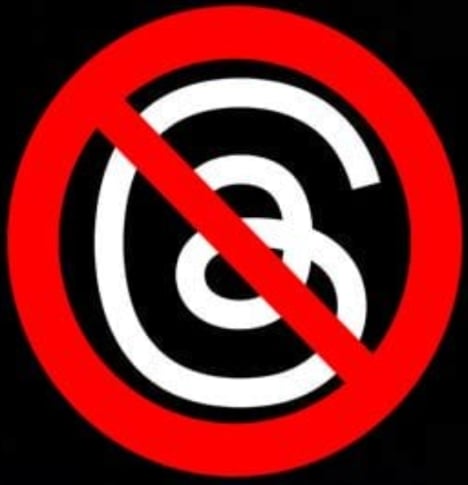Japan bombed Pearl Harbor in retaliation for US’s oil embargo. The Oil Embargo was due to Japan invading mainland Asia. Japan invaded mainland Asia due to… fascism. Imported from Germany.
But let’s clear something up. Pearl Harbor was an attack on military assets, the bombings of Hiroshima and Nagasaki were war crimes meant to crush opposition.
US dropped the a-bomb on Japan to crush any remaining resistance from Japan, and as a threat to the wider world (namely the USSR). There was no prior warning given so no civilians were able to evacuate. Between 110,000‐210,000 civilians were murdered by the dropping of those two bombs.
I disagree that there was no prior warning given to the civilians.
https://ahf.nuclearmuseum.org/ahf/key-documents/warning-leaflets/
That leaflet specifically mentions the destruction of Hiroshima. It was a wide spread fear campaign AFTER they dropped the first bomb. There was no forewarning.
Looks like you might be referencing the second leaflet mentioned in that article.
In August 1945, leaflets were dropped on several Japanese cities (including, supposedly, Hiroshima and Nagasaki). The first round, known as the “LeMay leaflets,” were distributed before the bombing of Hiroshima. These leaflets did not directly reference the atomic bomb, and it is unclear whether they were used to warn citizens of Hiroshima and Nagasaki specifically.
Seems like there is some ambiguity though, since it says they were supposedly dropped on Hiroshima and Nagasaki but then says it was unclear.
Not a lot of evidence left behind.
I don’t want to be rude but the sentiments expressed here present a double standard that excuses Japanese war crimes.
Point by point:
“Japan bombed Pearl Harbor in retaliation for US’s oil embargo.” This is a somewhat correct statement but omits context vital to the decision making. The Imperial Japanese armed forces had formulated 2 plans for imperial expansion, one into the south and one into the north. The “retaliation for oil embargo” argument is a fabrication of the Japanese military class, a justification for the shifting of focus to the south in search of rubber, tin and of course oil. British and American forces dominated the south pacific and knowing that there would be an inevitable attack based on their expansion the Japanese executed a timed attack on numerous military strong points notably pearl harbour but perhaps more strategically relevant the Philippines. The “retaliation to embargo” argument is straight from the mouths of Japanese military propagandists, the USA in particular had bent over backwards to supply Japan in an effort to slake their expanding resource demands till this point.
“Fascism… imported from Germany”: I’m not entirely sure why this was added as it is quite apparent to anyone studying Japanese military and political history of the late 19th and early 20th centuries that the Japanese empire had minted its own unique brand of extremist imperialism, you can term it fascism with the modern definition of the word but to insist that Japanese militarism in government is a result of European fascism is utterly ridiculous. In any case the foundations of this system date back to Meji era policies that significantly predate fascism in Europe as a practiced ideology.
“Attack on military assests”, “Hiroshima and Nagasaki were war crimes”
While both these statements can be considered to be true it implies that there is some kind of defecit in morality between these two cherry picked events. I needn’t go into detail on the extent of Japanese war crimes mere days after and indeed on the same day if you would consider actions in mainland Asia. You’ve created a fallacy of what-aboutism that doesn’t fit the realities of the war and the extreme inhumanity of Japanese expansionism both before and after their attacks on the US. The atomic bombs while singularly destructive did not meaningfully exceed the levels of destruction wrought through conventional warfare. There is much to be said about if the bombs were in a sense “cost effective” in terms of loss of life needed to achieve peace but once the military losses are accounted for, various plans to fight till extermination, the political climate, etc. It becomes apparent that the bombs precipitated a political coup that would not have been possible otherwise. All things considered the bombs seem to have bought peace rather cheaply.
“crush any remaining resistance from Japan”
Other comments seem to cover this rather well but what alternative is there? When considering the potential loss of life of an invasion not just in enemy personnel or even civilians but your own soldiery it seems to be an easy choice. Arguments can be made about the scale, morality and civil cost of the bombs but it comes down to a philosophical argument on the ethics of the matter. Can such a scale of destruction ever be justified? Absolutely not. Given all the evidence available were the atomic bombs the least costly scenario in terms of the least amount of destruction in every conceivable metric? Absolutely yes. Any other assessment amounts to historical revision.
I can’t reply fully tonight (inebriated) but this is a fantastic rebuttal. I didn’t mean to excuse Japanese War crimes, just add some context to the meme.
I love you. Big fan of the Pacific War and have a large collection of books I’ve yet to read on the subject, but I’ve read the Ian Toll trilogy on the subject as well as listened to a great deal of Dan Carlin’s Supernova in the East series on it, it’s so fascinating how tangled the political web was there.
Any other assessment amounts to historical revision.
Your assessment builds on the (unprovable and undisprovable) assumption that an invasion would have otherwise happened. But we can’t know what would have happened if different decisions were made. l Wikipedia says that at the time the top brass was split on this decision, and not just for moral reasons.
Also I’d like to mention that whether something is a war crime or not, is, at the end of the day, just a legal question. Back then it wasn’t, but by today’s treaties killing any civillian under any circumstance is indeed a war crime.
Japan didn’t import fascism, they were always a very authoritarian society based around a singular leader using cult of personality. Shoguns ran things locally while there was an emperor for nominal governance. The military ruled for so long that Japanese culture has been shaped by it for hundreds of years. A caste system works similar to fascism, with the samurai being the favored “in” group with all others subservient to them under the auspices of “protection”.
It is proportional. Atom bombs were crime against humanity. So are netflix adaptations of anime.
My teacher had a saying I’m struggling to remember: “When steel and oil don’t pass national lines, troops do.”
When goods don’t cross borders, soldiers will.
Thank you!
Sounds like a quote attributed to Frederic Bastiat: “When goods don’t cross borders, Soldiers will.”
I may be remembering this video essay from Shaun a little inaccurately, but I recall that Japan was preparing a surrender anyway, and was in talks with the USA, but the argument was whether the surrender would be unconditional or conditional (Japan wanted to keep the emperor in power). The US was worried about an impending Soviet invasion of Japan because they didn’t want the Soviet Union to have influence in post-war negotiaions (i.e. landgrabs). The US didn’t want to send in troops for a land invasion, so they decided to hasten Japan’s surrender with the atomic bombings of major cities (terrorism tactics, in my opinion, just like the much deadlier firebombings).
Americans (including me) are commonly taught that the bombs were the only choice in order to prevent lost lives of American troops, but the impression I remember getting from the video is that (my opinion) there was never a risk of an American ground troop invasion, and not a risk of another Japanese attack. Japan would have either surrendered or been invaded by the Soviets.
The kicker is that Japan surrendered unconditionally to the US, but in the end, the US decided that the emperor should stay in power anyway, so those civilian deaths to the atomic bombs were always unnecessary.
The unconditional surrender being whiffed on things like “execution of those most responsible” and “making sure their legal system believes in innocent until proven guilty” by MacArthur is irrelevant, a conditional surrender would almost certainly have denied any reconstruction period at all.
As for whether the bombs were necessary…
Practically the entire Japanese navy had been destroyed. Their mainland holdings were falling. Their army had already lost its heavy equipment and 2 million soldiers in China to kill 22 million people. Their wunderwaffe programs were years from completion.
They’d already executed and exiled anyone that didn’t bend the knee to the militarism cult.
They didn’t surrender. They didn’t even surrender after the first bomb. They waited until the second, and even then a fairly large portion of the IJA tried to launch a coup to stop it, the Kyuju incident. The Minister of War tried to convince others to refuse surrender, and only failed because the others were loyal to their God-Emperor’s wishes. Which implies, btw, that if the Emperor has wished to keep fighting, they would have, and the Truman administration had received no indication that the Emperor was willing to accept an unconditional surrender. They had, in fact, seemingly rejected the conditional surrender offered by the Potsdam Declaration.
You think you understand how fanatical the IJA was, you do not. You can not, and still be a sane, rational person.
And, quite frankly?
Don’t want to get nuked, don’t genocide half of Asia and then refuse to admit wrongdoing.
Here is an alternative Piped link(s):
Piped is a privacy-respecting open-source alternative frontend to YouTube.
I’m open-source; check me out at GitHub.
The meme should be Bart to Homer and Homer to Lisa.
But the bombings did prevent a lot of OTHER war crimes that were definitely on the table so they’re justified /s
It did save the lives of the soldiers who were going to invade Japan. Its fine to call sacrificing several hundred thousand lives unjustified but that was the rational at the time.
Not only those soldiers though. Japanese soldiers as well, and don’t forget they convinced local communities to commit suicide ‘to save themselves from the brutality of US soldiers’
Yeah Japan was a bit goofy during those times.
Not a whole lot fewer people died in regular bombing raids of Tokyo yet everyone keeps on shitting on the atomic bombs that ended the war. We’re the results better in Germany when allied soldiers basically went door to door all the way to Berlin killing armed and very much dangerous elderly, women and children? You really think Imperial Japanese were less fanatical than that? Well think again.
Well that’s a interesting take. I won’t disagree that the US could’ve given them a warning. It may not of mattered as the Japanese at the time weren’t known for backing down.
I think US interests were focused on saving US lives at the cost of Japanese lives. I’m pretty sure the Japanese knew the US had nukes but they didn’t believe they would actually be used.
Hiroshima was the first non-top-secret detonation of a nuke. Literally no other country knew we had those weapons until we erased a city with it. They were theorized and a known possibility, but that’s a far cry from actionable intelligence or even a plausible suspicion.
- Don’t touch the USA’s fucking boats. Japan knew that and choose to FAFO. Almost every war we have waged in the last two hundred years has been because someone touched our fucking boats.
- Don’t start shit you can’t finish.
- It’s called war for a reason. You kill enough of the enemy they give up. The more you can kill without loosing your own people the better.
- My grandfather was sitting in the Philippines waiting for orders to invade Japan. I’m personally very happy that he did not have to. I fully support the decision to use the A-bomb.
Not trying to justify war crimes, but the One Piece live action show was really good.
I was about to say that It’s the only one, but then I remembered Alice in Borderlands was great too. The anime was just a 3 episode OVA that I heard wasn’t great so dunno if it counts.
Still, it’s extremely rare that a live action adaptation is even watchable let alone good.
I also enjoyed the Rourouni Kenshin movies, but the animated OVAs were objectively better.
I just saw a preview for a Yu Yu Hakusho live action adaptation, and it’s been so long since I watched the anime that I probably won’t mind if it isn’t super faithful.
I couldn’t get through Death Note, and while I watched all of Cowboy Bebop, I was very upset about it.
We need a Japanese reproduction of the combined movie Barbenheimer.








